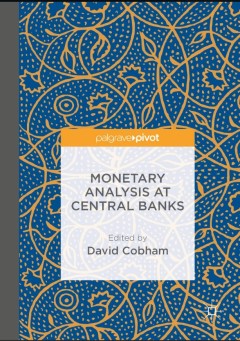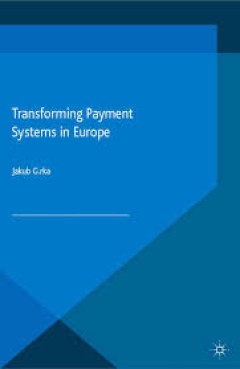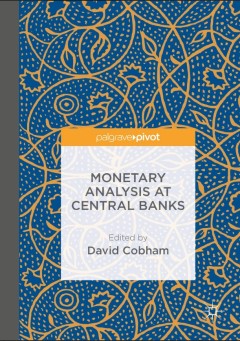Filter by

The Complexity of Tax Simplification
Simplicity in taxation has considerable potential advantages. However, attempts to simplify tax systems are only likely to be successful and enduring if they take account of the reasons why taxation is complex. There are strong pressures on tax systems to accommodate a range of important factors, as well as complex and changing national and international environments within which modern tax sys…
- Edition
- -
- ISBN/ISSN
- 978-1-137-47869-6
- Collation
- XIV, 273
- Series Title
- -
- Call Number
- -

Monetary Analysis at Central Banks
Whatever happened to the money supply? This book explains how the analysis of monetary and credit aggregates is undertaken at the Bank of England, the European Central Bank and (as an example of a developing country) the Bank of Tanzania. The book also explores how this analysis relates to these central banks' monetary policy strategies and how it feeds into policymaking. An editorial introduct…
- Edition
- 1
- ISBN/ISSN
- 978-1-137-59334-4
- Collation
- XI, 139
- Series Title
- -
- Call Number
- -

Transforming Payment Systems in Europe
The European payment market has undergone rapid transformation in recent years due to changes in payment habits, new business rules and new legal frameworks and regulation. There has also been an advent of new technologies and payment solutions which has altered the European payments landscape drastically. This book provides an overview of the fundamental issues involved in this new payments l…
- Edition
- 1
- ISBN/ISSN
- 978-1-137-54120-8
- Collation
- XX, 270
- Series Title
- Palgrave Macmillan Studies in Banking and Financial Institutions
- Call Number
- -

Empirical Evidence on the Macroeconomic Effects of EU Cohesion Policy
Philipp Mohl evaluates the macroeconomic effects of EU Cohesion Policy with the help of empirical methods. His findings indicate that in particular the part of EU Cohesion Policy which is spent for the poorest regions (the so-called Objective 1 funding) has a positive and statistically significant impact on economic growth. Moreover, the employment effects of EU Cohesion Policy seem to be condi…
- Edition
- -
- ISBN/ISSN
- 978-3-658-13852-3
- Collation
- 21 b/w illustrations
- Series Title
- -
- Call Number
- -

Monetary Analysis at Central Banks
Whatever happened to the money supply? This book explains how the analysis of monetary and credit aggregates is undertaken at the Bank of England, the European Central Bank and (as an example of a developing country) the Bank of Tanzania. The book also explores how this analysis relates to these central banks' monetary policy strategies and how it feeds into policymaking. An editorial introduct…
- Edition
- 1
- ISBN/ISSN
- 978-1-137-59334-4
- Collation
- XI, 139
- Series Title
- -
- Call Number
- -

Microfinance, EU Structural Funds and Capacity Building for Managing Authorit…
In recent years, the European Commission has attached increasing importance to the use of financial engineering instruments rather than traditional grant-based financing for the microcredit sector, considering these to be the most efficient option available. This book presents a study of capacity building and structural funds in public managing authorities for the microcredit sector. It present…
- Edition
- 1
- ISBN/ISSN
- 978-1-137-51512-4
- Collation
- XXX, 286
- Series Title
- Palgrave Studies in Impact Finance
- Call Number
- -
 Computer Science, Information & General Works
Computer Science, Information & General Works  Philosophy & Psychology
Philosophy & Psychology  Religion
Religion  Social Sciences
Social Sciences  Language
Language  Pure Science
Pure Science  Applied Sciences
Applied Sciences  Art & Recreation
Art & Recreation  Literature
Literature  History & Geography
History & Geography